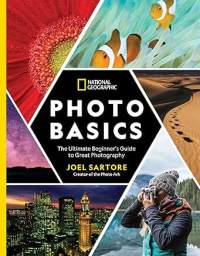

Photography Techniques"The Essentials"
If you first started taking pictures fairly recently you probably learned your photography techniques with a modern camera. This gave you tremendous advantages because all you had to do was switch it on, point the camera at your subject and press the shutter button to record your image. You didn’t have to worry about all the settings that the camera made for you automatically or, if you were offered a choice of settings, there was an “auto” or “program” setting that you selected. Had your interest in photography begun a little earlier, before automatic cameras were available, you would have had a bit more to learn before you could grab those pictures. How boring. Or was it? Learning and understanding the basics of
how to set up the camera yourself actually takes you a long way towards
improving your photography techniques and therefore taking better
photographs.
So what are the basics? Whenever you prepare to take a photograph there are four important things to remember - 1 - Composition (What is in the picture and where it is) 2 - Lighting (What's in the light and what’s in the shade) 3 - Exposure (The amount of light “seen” by the camera) 4 - Focus
(What is sharp and what isn’t)
CLEF - Easy to remember, even if you are not a musician!
Right. All set up. Batteries charged and camera switched on? Nearly ready, but one final thought ..... Who will be viewing your picture? This may not seem important but it is always worth remembering when you take a photograph. The reason is that you will have experienced the actual scene and your photograph will trigger the memory of it when you view it in the future. It will give you a feeling. When someone else who was not at the actual scene views your photograph, they will want it to communicate a feeling to them, even if it is different from yours. Try to bear this in mind whenever you
take a photograph.
Let’s consider Composition - Do you ever feel that your photos are not very exciting? Whatever camera you are using, your photographs
will only grab attention if they are well composed - your viewpoint,
how the elements are arranged within the frame, what’s included and,
just as important, what is left out.
If there is one element in your photography
techniques that can make or break a photo it is lighting and yet, it is
often the least considered element, even if it is thought of at all.
To discover what exposure means in photography and why it is so important to get it right, click here.
By clicking here and going to the focus section you will find out how to use the shape of a camera’s lens to great advantage in your photography techniques.
Return from Photography Techniques
to Better Photographs Home Page |
 |
| Image of the Month |
 |
| Click here to download it. |
| Find It |

Custom Search
|
| All of the advice, tutorials, masterclasses and ideas on this website are available to you at no charge. Even so, its upkeep does incur costs. |
|
| If you feel that
the site has helped you then any contribution you make, however small,
would go towards its ongoing maintenance and development. Thanks for your help. |
| Book of the Month |
 |
| Click here to read the review. |
|
|






New! Comments
Have your say about what you just read! Leave me a comment in the box below.